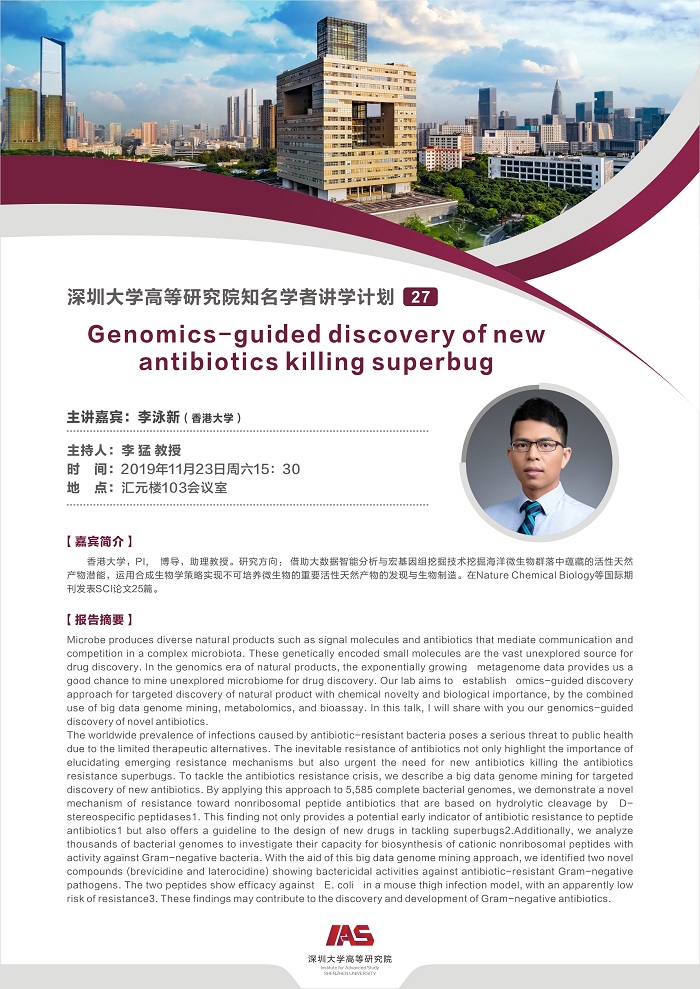Title: Genomics-guided discovery of new antibiotics killing superbug
Speaker: Yongxin Li (Hong Kong University)
Host: Professor Meng Li
Time: 15:30 on Nov. 23, 2019
Venue: 103 Meeting Room in Huiyuan Building
Report Abstract:
Microbe produces diverse natural products such as signal molecules and antibiotics that mediate communication and competition in a complex microbiota. These genetically encoded small molecules are the vast unexplored source for drug discovery. In the genomics era of natural products, the exponentially growing metagenome data provides us a good chance to mine unexplored microbiome for drug discovery. Our lab aims to establish omics-guided discovery approach for targeted discovery of natural product with chemical novelty and biological importance, by the combined use of big data genome mining, metabolomics, and bioassay. In this talk, I will share with you our genomics-guided discovery of novel antibiotics.
The worldwide prevalence of infections caused by antibiotic-resistant bacteria poses a serious threat to public health due to the limited therapeutic alternatives. The inevitable resistance of antibiotics not only highlights the importance of elucidating emerging resistance mechanisms but also urgent the need for new antibiotics killing the antibiotics resistance superbugs. To tackle the antibiotics resistance crisis, we describe a big data genome mining for targeted discovery of new antibiotics. By applying this approach to 5,585 complete bacterial genomes, we demonstrate a novel mechanism of resistance toward nonribosomal peptide antibiotics that are based on hydrolytic cleavage by D-stereospecific peptidases1. This finding not only provides a potential early indicator of antibiotic resistance to peptide antibiotics1 but also offers a guideline to the design of new drugs in tackling superbugs2. Additionally, we analyze thousands of bacterial genomes to investigate their capacity for biosynthesis of cationic nonribosomal peptides with activity against Gram-negative bacteria. With the aid of this big data genome mining approach, we identified two novel compounds (brevicidine and laterocidine) showing bactericidal activities against antibiotic-resistant Gram-negative pathogens. The two peptides show efficacy against E. coli in a mouse thigh infection model, with an apparently low risk of resistance3. These findings may contribute to the discovery and development of Gram-negative antibiotics.
Speaker Introduction:
Assistant Professor and Ph.D. Supervisor of the Hong Kong University
Research interest: use big data, intelligent analysis, and metagenomic mining technology to find the potential of active natural products in marine microbial aggregation, and use synthetic biological strategies to discover the biological manufacturing of important active and natural products of non-cultivable microorganisms. He has published 25 SCI papers in international journals such as natural chemical biology.



